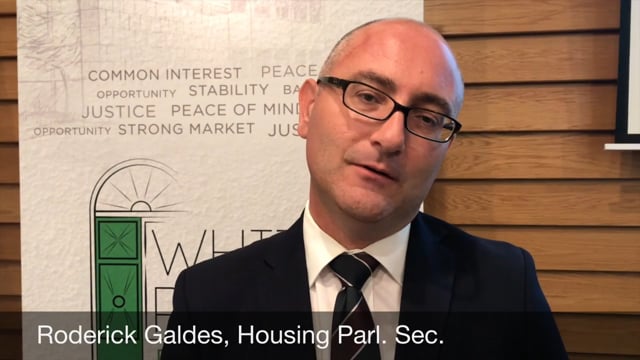[WATCH] Rent reform will not fix prices, targets stability through longer leases
A long-awaited White Paper on rent reform is proposing compulsory registration of rental contracts and options to encourage longer leases


Landlords will remain free to fix monthly rents under a proposed reform of the rental market but government will have to consider measures to encourage longer leases.
A White Paper on rent reform out today is proposing two models to encourage longer leases and set annual increases in rental payments. It also proposes the compulsory registration of rental contracts.
The first model proposes the introduction of mandatory minimum rental contracts with annual increases in rent agreed beforehand between the landlord and tenant.
The second model ditches the forced minimum duration and relies on fiscal incentives to encourage landlords to offer longer leases with agreed annual increases.
The White Paper does not elaborate what the fiscal incentives and the ideal minimum duration of rental contracts should be.
READ ALSO: Rise in prices closing off property market for median wage earners
Kurt Scerri, a lawyer specialised on rent, who worked on the White Paper said the monthly rental payments were not the only problem tenants currently faced.
“The extensive research carried out showed that short rental contracts were leaving tenants in a state of limbo, unable to settle down and plan ahead,” Scerri said. This situation in turn led to unplanned rental increases every few months.
New regulating entity
The White Paper is proposing the creation of a new department within the Housing Authority that will be tasked with overseeing the rental market.
Scerri said that rental contracts will have to be registered with this department, alongside with a form from utility billing company ARMS indicating the number of tenants and who they are.

The deposit amount, often a source of contention between landlords and tenants, will have to be registered in the contract alongside an inventory with photographic evidence.
The obligation to register rental contracts lies with the landlord. If the landlord fails to register the contract, tenants will be empowered to do so instead at the landlord’s expense, he added. Failure to register contracts will incur penalties.
The White Paper is also proposing the introduction of an adequate notice period for tenants and landlords to terminate the rental contract if circumstances change.
The new department will also be tasked with enforcing rental regulations.
The White Paper says the law regulating evictions is working fine but all cases are channelled through one member of the judiciary. It proposes the creation of a second chamber to deal with such disputes.
Demographic changes
Scerri insisted that the private rental market should not be confused with social housing, insisting the past few years have shown a growing group of people opting to live in rented accommodation.
“There is a shortage of affordable rental property within the €400-€700 per month range and more needs to be done to increase this supply,” Scerri said.
The White Paper encourages the government to invest with the private sector to increase the supply of affordable housing for rent.
The proposals are aimed at primary residences. This means the rental regulations will exclude properties used for tourist accommodation or short lets to foreigners residing in Malta for a brief period.
Price fixing not an option
Housing Parliamentary Secretary Roderick Galdes said fixing rental prices was not an option because it risked stifling the market. “We learnt from past mistakes when landlords refused to rent out property out of fear that they will lose it and not get a good return,” he added.
Galdes said the White Paper was the first in a series of other reforms being planned by the government.
“In the forthcoming budget, we will introduce measures to help people who live in private rented housing,” he said.
Galdes said the aim of the reform was to create more stability and transparency in the rental market to an extent that people living in rented property would be able to create a home in the place where they reside.
He noted that the dynamics of the rental market changed along with the country’s demography.
The influx of foreigners, the increase in separated people and young individuals who choose to rent rather than buy, have contributed to an expansion in the rental market.
Finance Minister Edward Scicluna said the economic side of the housing market could not be ignored. Many people were benefitting from a buoyant rental market, he added.
Recent figures from the National Statistics Office showed that 78% of families were homeowners. The rest were split between those who live in rented government housing and those who rent out from the private sector.
READ ALSO: Homeownership is king in Malta but almost 30,000 families live in rented property
He said the country did not face a national problem on rent because the vast majority of people lived in property they owned. However, he insisted this did not mean that some people were not hurt by the increases in rents.
“This does not mean that those who live in rented accommodation have not felt the squeeze of rising rents but the challenge is how to support those who are finding it difficult,” Scicluna said, adding the White Paper was intended as a discussion document to start introducing a regulatory framework.
Social Policy Minister Michael Falzon said the government had acknowledged the tension in the property market created by changing social and economic circumstances. “This White Paper is not cast in stone and we will remain open to suggestions. We do not want to stifle the market but it is our responsibility to give the market direction through regulation.”
The public consultation on the White Paper is open until 30 November and anybody interested can make submissions on socialaccommodation.gov.mt.






.jpg)















